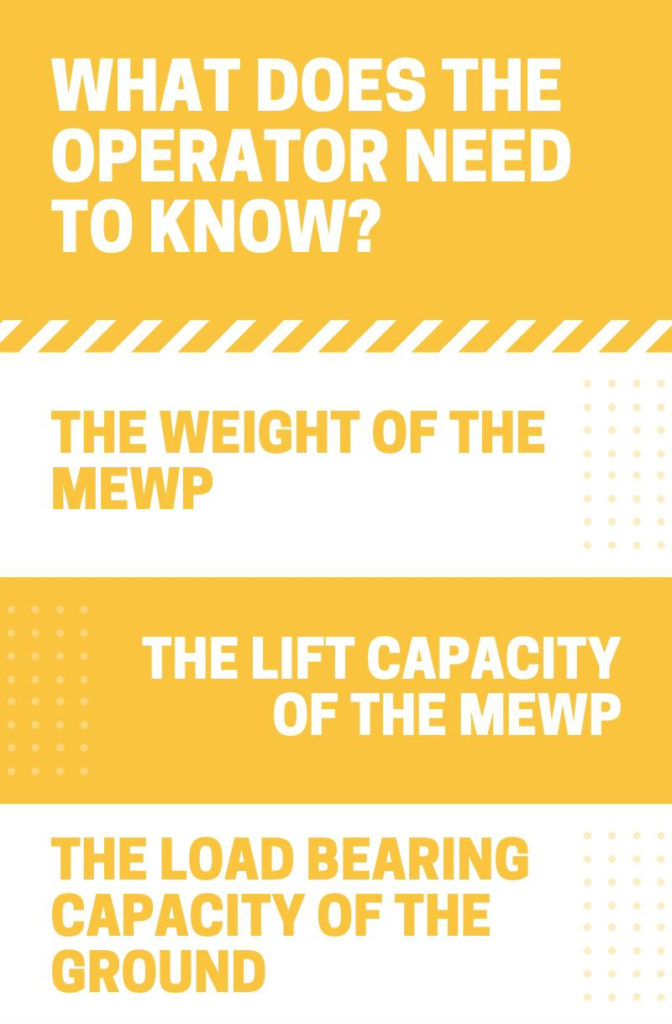Ground conditions are critical for the stability of the mobile elevating work platforms, either they require the use of outriggers or they operate freely on wheels. Poor ground conditions can result in instability, MEWPs overturning or worse. It is thus essential to perform a ground assessment before driving or using a MEWP on any surface.
What to look out for?
The assessment of ground strength can vary from a visual inspection of the ground surface to a full geotechnical survey, according to the site category (greenfield sites, paved areas, filled construction sites…). We advise MEWP operators to check the planned route, the work area before starting to work. The following are some typical ground condition hazards that an operator may encounter:
- Sloping or uneven surfaces;
- Proximity to excavations, soft ground or uncompacted fill;
- Paved areas, curbs and edgings;
- Suspended floors.
It is important to ask for the location of underground networks. Sewers, drains, manholes, gas, and water mains might be damaged by the weight of a MEWP or could even collapse and cause the MEWP to become unstable or overturn. Likewise, weather conditions such as heavy rain or frozen ground can alter ground conditions. Regular checks should be carried out to adjust the machine level or outriggers. For machines equipped with stabilizers, it is strongly recommended to use outrigger pads to distribute the weight of the MEWPs on a larger surface.
The ground assessment must be made by persons with adequate knowledge and experience to know when further expert advice and assessment is required.
For more information, consult the IPAF Guidance on the Assessment of Ground Conditions.
